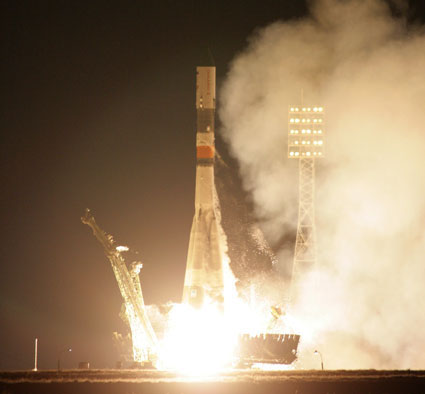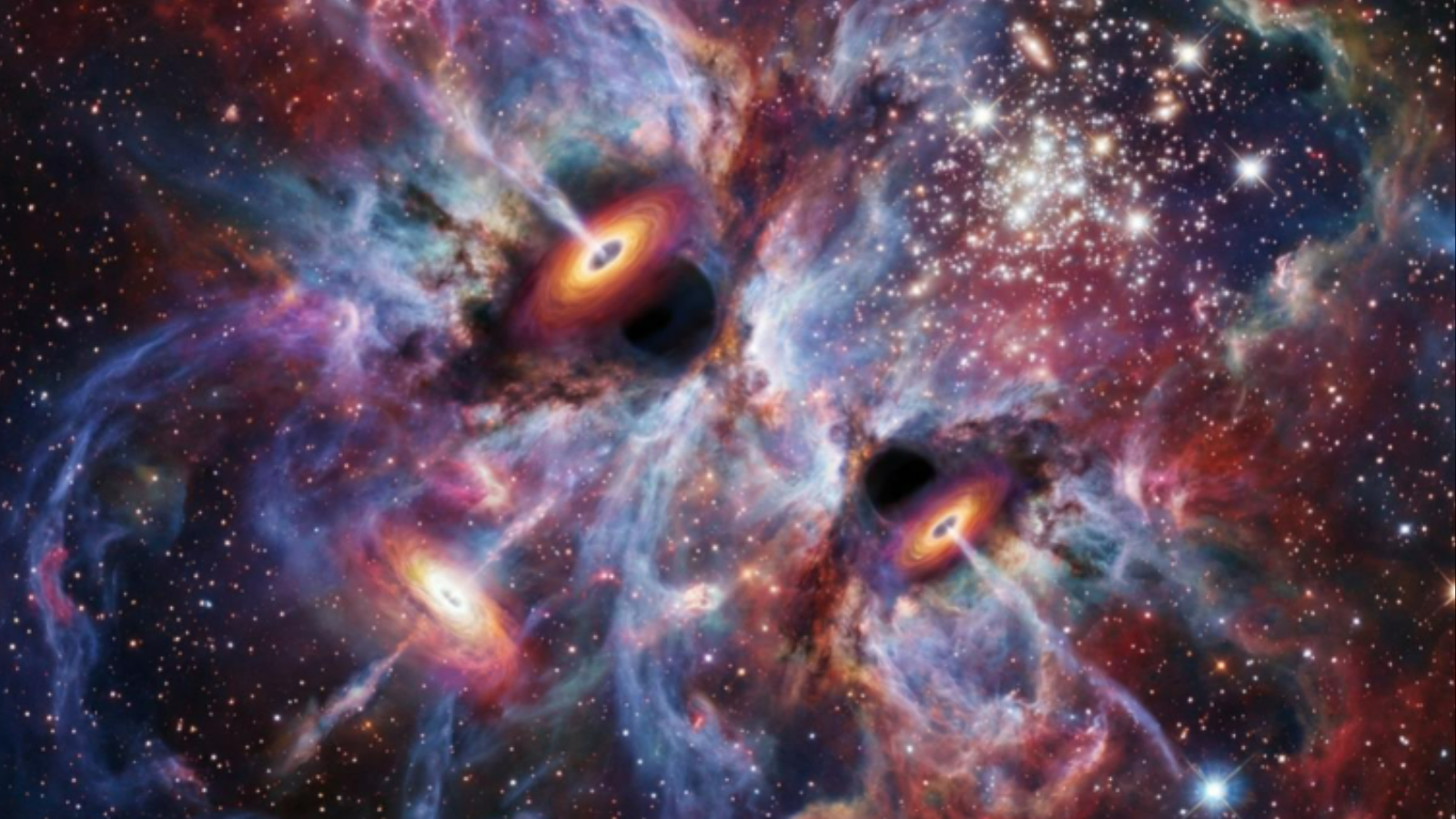Russian Cargo Ship Docks at Space Station Despite Malfunction

A new unmanned cargo ship loaded with tons of supplies successfully docked at the International Space StationSaturday despite a last-minute failure that forced a Russian cosmonaut to takecontrol and guide the robotic freighter in manually.
Russian space station commander Oleg Kotov took manualcontrol of the automated cargo ship, called Progress37, while it hovered about 3,280 feet (1,000 meters) away from theorbiting lab with 2.6 tons (2,359 kg) ?of supplies onboard.
Kotov, a colonel in the Russian Air Force, used a remote controlstation set up inside the station to guide the 24-foot (7.4-foot) longspacecraft into a Russian docking port on the Earth-facing side of the orbitinglaboratory. With deft hands, Kotov flew the Progress 37 in to a 2:30 p.m. EDT(1830 GMT) docking as the space station flew 220 miles (354 km) over southernRussia.
"I found the station and I?m going to bring it into thecenter of the field of view," Kotov told Russian Mission Control inMoscow. Flight controllers kept close tabs on Kotov's progress. "I'm justgoing really slow and taking it very easy," the cosmonaut said.
Kotov took control of Progress 37 after it failed toreturn to the proper docking orientation following a series of thruster firings.Kotov and two other Russian crewmates monitored the cargo ship's approach usingthe station's Telerobotically Operated Rendezvous Unit (TORU) system.
NASA officials called Kotov's manual docking "flawless."He even docked it five minutes earlier than planned.
Russian Mission Control gave the station crew heartycongratulations and said Kotov's Progress 37 rendezvous work may have set a newrecord.
Breaking space news, the latest updates on rocket launches, skywatching events and more!
"You brought it in from close to 1,000 meters,"Mission Control said. "That's a first time in history."
The Progress 37 cargo ship, also known as M-05M, is thelatest in a series of robotic Russian spacecraft to haul vital supplies to theInternational Space Station. The spacecraft blasted off from the Central Asianspaceport of Baikonur Cosmodrome in Kazakhstan on Wednesday.
Progress spacecraft are made up of three differentmodules and resemble Russia'sSoyuz spacecraft ? which ferry astronauts and cosmonauts to and from thestation. Both are designed to fly and dock autonomously. But instead of theSoyuz's crew capsule, Progress vehicles carry a tank of propellant to feed thespace station's rocket thrusters. ?
Progress freighters are also expendable, and areroutinely intentionally destroyed at the end of their missions. Last week, theProgress 35 spacecraft undocked from the station's Pirs docking port ? where thenew Progress 37 parked today. That older spacecraft burned up over the PacificOcean on Tuesday.
NASA officials have said Progress 37 is hauling 1,918pounds (870 kg) of propellant, 110 pounds (50 kg) of oxygen and air, 220 pounds(100 kg) of water, and about 3,301 pounds (1,497 kg) of experiment hardware andspare parts.
Progress 37's arrival marks the start of a busy May forthe International Space Station.
In upcoming weeks, another old unmanned cargo ship,Progress 36, is due to depart the space station. Soon after, NASA's space shuttleAtlantis is due to launch on its final spaceflight ever on May 14 to deliver anew Russian science module to the space station.
It will be one of NASA's three finalshuttle missions before the three-orbiter fleet retires in November.
Progress 37 carried more than just standard supplies andfood for the station crew. It also delivered much-anticipated personal itemsfor the space station's six-person crew. In addition to Kotov, there are two other Russian cosmonauts, two American astronauts and Japanese astronaut living on the station today.
Candy, books and movies are just some of those goodies,according to Russian news reports.
- The Top 10 Russian Space Missions
- NASA's Most Memorable Missions
- Morning Star: The Pre-dawn Launch of Shuttle Discovery

Tariq is the award-winning Editor-in-Chief of Space.com and joined the team in 2001. He covers human spaceflight, as well as skywatching and entertainment. He became Space.com's Editor-in-Chief in 2019. Before joining Space.com, Tariq was a staff reporter for The Los Angeles Times covering education and city beats in La Habra, Fullerton and Huntington Beach. He's a recipient of the 2022 Harry Kolcum Award for excellence in space reporting and the 2025 Space Pioneer Award from the National Space Society. He is an Eagle Scout and Space Camp alum with journalism degrees from the USC and NYU. You can find Tariq at Space.com and as the co-host to the This Week In Space podcast on the TWiT network. To see his latest project, you can follow Tariq on Twitter @tariqjmalik.
